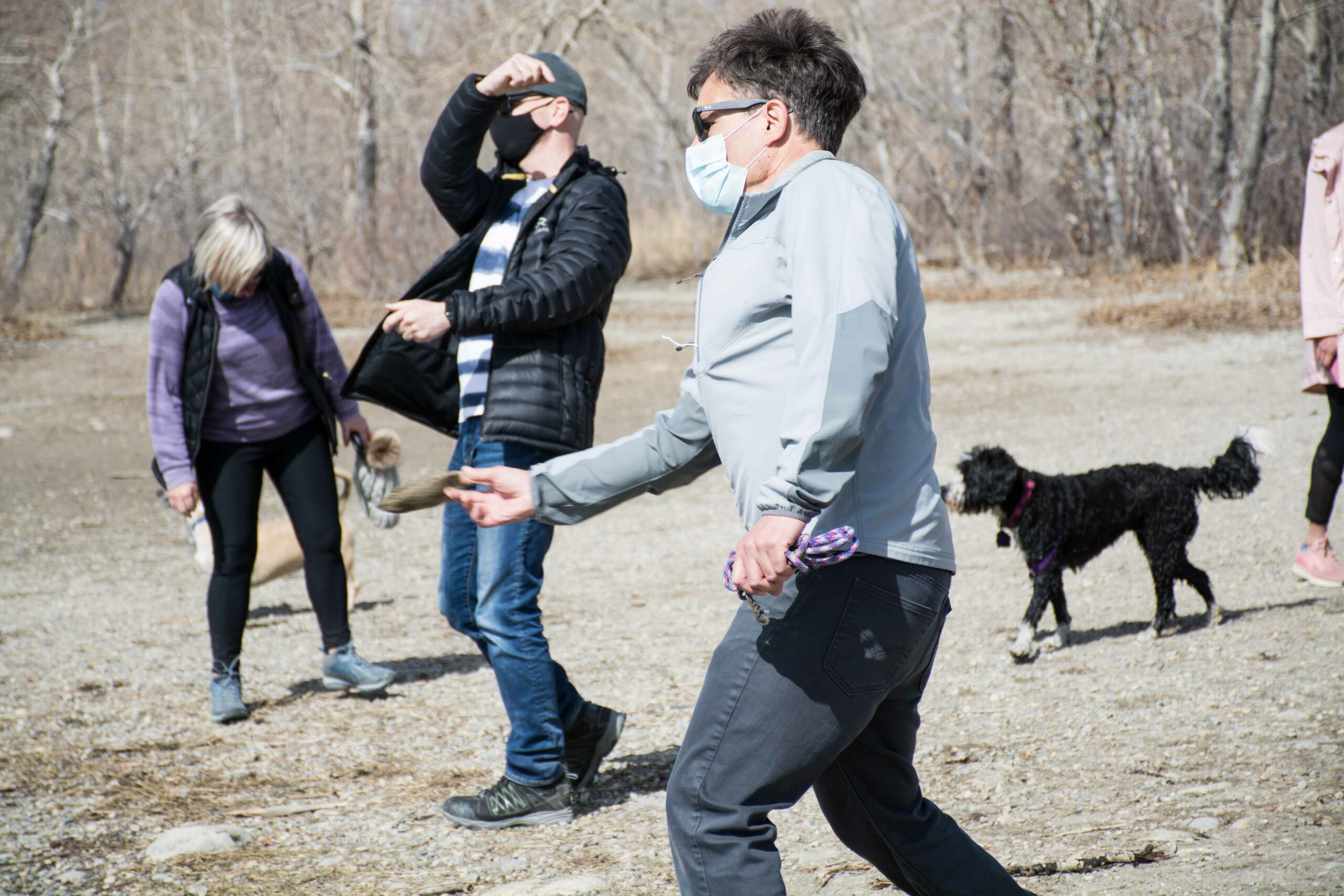Changing lives with YouQuest

Photo by YouQuest
“Clyde is one of the most incredible human beings I’ve ever met in my entire life,” Angela Kelly says of her husband. “He fights every day to stay tethered to my world. Every day he fights, to be a part of life, to be funny. He loves to make people laugh.”
Clyde is 66. Angela is 59. They should be preparing for a happy retirement and doing all the things they’d made plans for in years previous. However, their lives changed irrevocably about nine years ago. This was when Clyde first started presenting symptoms of Early Onset Alzheimer’s.
“I started noticing things when Clyde was about 57 or 58,” Angela recalls. “At the time, you’re not thinking Alzheimer’s or whatever, you think it’s a normal part of ageing.”
But it wasn’t.
Alzheimer’s disease is the most common form of neurological dementia, affecting a person’s memory, thinking and behaviour. Normally, it affects those above the age of 65. If it begins to take hold when a person is younger than that, it’s known as Early Onset Alzheimer’s.
Scientists still don’t know what causes the roots of the neurological decay: they understand that there are fragments of proteins that build up and damage different parts of the brain. Experts understand the how, but there are still so many questions about the why.
The “How” for Clyde started with social situations.
“Clyde was an extrovert,” Angela says, comfortable in any social situation. She recalls the time going to a piano bar where Clyde got up and asked to sing song or two himself, no fear whatsoever when it came to making others smile or making others laugh.
Angela would try making plans and Clyde would have hesitations about meeting people. “He’d say, ‘well I don’t know those people’.”
“And he’s never met a person he didn’t ‘know,’ right? It was strange for me. It was small things like that.”
When Clyde was closer to hitting 60, Angela realized there was something seriously wrong, but many of the medical practitioners the two spoke with didn’t consider Early Onset Alzheimer’s at that time.
It wouldn’t be until he was 61 that Clyde was booked for a scan, where they finally received a diagnosis.
“I was an emotional basket case,” Angela recounts. “I’m pretty emotional when it comes to him. He’s one of the kindest, funniest, sweetest people ever, and it seems so unfair.”
Clyde’s response to the diagnosis was filled with bravery; bravery and courage in front of the most impossible and impenetrable of circumstances:
“I lived a pretty good life, if someone has to take to hit, I’d rather it be me than one of those kids over at the children’s hospital.”
They had the diagnosis. Their lives had changed irrevocably. What was next?
There aren’t nearly as many resources offered for those with Early Onset Alzheimer’s compared to those past the age of 65, Angela said.
“There was no help, because of his age. There was no help, and you just flounder… there was nothing to guide you, or help you. But life goes on.”
One of the few resources that were available was an organization Called YouQuest.
YouQuest aims to fill in the gap where resources are unavailable, for those with young-onset Alzheimer’s and dementia in their 40s, 50s and 60s.
By focusing on recreation therapy and active living, YouQuest not only provides care to improve the quality of life for those diagnosed, but they also help provide a much-needed reprieve to family caregivers.
Clyde and Angela got involved with YouQuest. Angela said that the first day she dropped Clyde off, she was a nervous wreck.
“It was like sending your child to school for the first time.”
Clyde got to play basketball, make new social connections, and most importantly, was treated like a person with value by other participants and volunteers.
“These people are incredible…If you watch how they interact with people, it’s a sight to behold,” Angela says of YouQuest. “They still treat them like they are valued members of society, how they think, and what they feel, it’s important to them. And most people don’t understand that.”
Angela comments also on the combined difficulty and benefit of socialization and recreation for those with young-onset diagnosis: at the time in your life when you most need to go out, see people and do things, your peer group disappears.
YouQuest, once again, acts to fill the gap.
Not only for Clyde but for Angela as well.
“I felt like I was floating out in the wind until I got into YouQuest,” Angela says.
She describes the difficulty and difference when it comes to emotionally processing young-onset Alzheimer’s compared to having a parent or a grandparent diagnosed much later in life.
While both are hard and demanding in their own, specific and heart-breaking way, having a spouse receive a diagnosis while still in the prime of their life is another beast altogether.
“You have to juggle a job, plus look after someone … other folks, they haven’t lost your life’s work, your retirement … the stress of your husband leaving work early,” she says. “He’s still a young man and he wants to do things, to participate in life … not that someone who’s 85 doesn’t, but they have different needs.”
“Not only am I losing my spouse piece-by-piece, day-by-day, but we’re losing all the plans we had for our future.”
Angela describes an experience that is equal parts impossible and heart-breaking. And yet, they move forward in life. With dignity, with strength and with laughter.
“He loves to make people laugh, and if you ask him, what do you want people to remember? ‘I want people to know that I was funny and I was kind’.”
“Every single day, I wake up and ask: Let me be worthy of him today because he’s such an amazing person,” Angela says.
“We’ll get through.”
